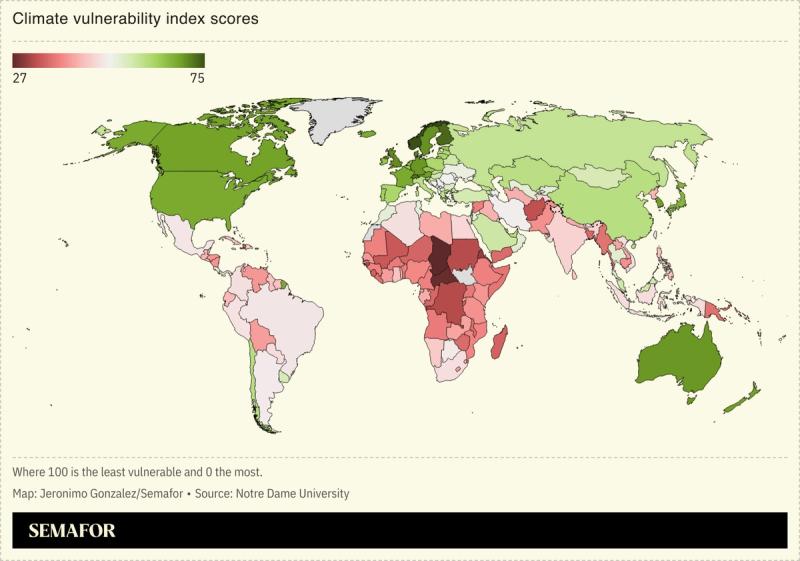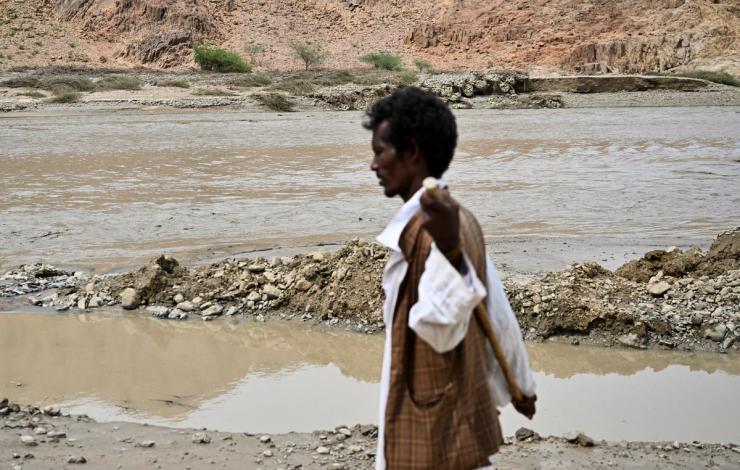The News
African countries are losing up to 5% of their yearly GDP to climate change, a new report found.
According to the World Meteorological Organization, they are spending as much as 9% of their budgets on climate adaptation: The continent “bears an exceptionally heavy burden from climate change,” given that it has the smallest carbon footprint on a per capita basis, the WMO said.
Millions of Africans — many living in some of the most vulnerable places to warming — have been displaced this year already as extreme rains and floods have devastated homes and crops.

SIGNALS
Agriculture sector takes the brunt of the impact
Most African countries rely on agriculture for the bulk of their economy and for employment, accounting for 55% of the workforce, according to the WMO. But climate change has spurred a sharp decline in agricultural productivity — down 34% since 1961 — the worst drop when compared to other regions of the world. Part of the reason is to do with extreme heat and the human body — the average African worker has had their labor time effectively reduced by 161 hours a year, The Economist noted, citing research group Lancet Countdown. For formally employed workers, that can translate into 4% less annual earnings.
Climate change is also affecting health
Certain aspects of the climate, like rain, humidity, and temperature can influence the distribution of infectious diseases, including malaria, a researcher said at a climate-focused conference last year. Higher temperatures and rainfall can also lead to more people getting diarrhea, as well as heat-related illnesses. Climate change is expected to cause 250,000 additional deaths yearly over the next two decades, the World Health Organization has estimated, stemming from malnutrition, malaria, diarrhea, and heat stress, and the direct costs of health issues could reach up to $4 billion a year by 2030.
Adaptation funding remains inadequate for Africa
Despite being the most affected global region by climate change, over 2021 and 2022 Africa only received 20% of global climate adaptation funding, which are directed toward preventing the negative effects of climate change, the Brookings Institute think tank noted. That’s less than half of what reached East Asia and the Pacific region, which received about 45%. The private sector has been particularly reluctant to finance climate adaptation efforts in Africa, contributing only 3%. “The continent needs an additional $70 billion each year, between now and 2030, to meet its adaptation and resilience-building needs,” the UN’s deputy secretary-general Amina Mohammed said at a climate-focused event earlier this year. “Without it, the future of the world’s most youthful population and economy will be on the line.”


